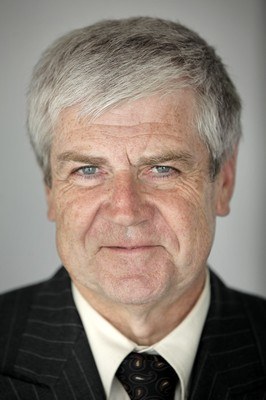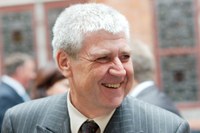Prof. Marc Depaepe, ugledni strokovnjak za mednarodna vprašanja zgodovine izobraževanja in zgodovine psihologije, predava 23. maja v Ljubljani!


Zveza zgodovinskih društev Slovenije ZZDS in Inštitut za novejšo zgodovino INZvas vabita na predavanje:
Kolonialna vzgoja in izobraževanje v Kongu – vprašanje “nekritične pedagogike” do grenkega konca?

O kolonialni vzgoji in izobraževanju v Kongu kot vprašanju “nekritične pedagogike” bo predaval prof. Marc Depaepe (KU Leuven, Belgija).
Predavatelj je ugledni strokovnjak za mednarodna vprašanja zgodovine izobraževanja in zgodovine psihologije, univerzitetni profesor, član in predsednik mednarodnih društev za zgodovino vzgoje in urednik vrste publikacij in revij s področja zgodovine izobraževanja.
Predavanje bo v sredo, 23. maja 2018 ob 11.00 v sejni sobi Inštituta za novejšo zgodovino v Ljubljani, Kongresni trg 1/II.
Prof. Marc Depaepe bo predaval v angleškem jeziku. Lepo povabljeni k predavanju in diskusiji o temah iz pedagoške preteklosti Konga in Evrope, zgodovine izobraževanja in psihologije, o pedagoških dilemah preteklosti in sodobnosti.
Colonial education in the Congo – a question of “uncritical pedagogy” until the bitter end?
Prof. Marc Depaepe , KULeuven@Kulak, Belgium
Our approach is a historical, and not a theoretical or a philosophical one. But such an approach might help in understanding the complexities and ambiguities of the pedagogical mentalities in the course of the twentieth century. As is usually the case in historical research, the groundwork must
precede the formulation of hypotheses, let alone theories, about the nature of pedagogical practices.
Therefore, since the 1990s, “we” (as a team) have been busy studying the history of education in the former Belgian Congo. Of course, since then we have not only closely monitored the theoretical and methodological developments in the field of colonial historiography, but have ourselves
also contributed to that history. This article tries to give an overview of some of our analyses, concentrating on the question of to what extent the Belgian offensive of colonial (i.e. mainly
Catholic) missionary education, which was almost exclusively targeted at “paternalism,”
contributed to the development of a personal life, individual autonomy and/or emancipation of the native people. From the rear-view mirror of history we are, among other things, zooming in on the crucial 1950s, during which decade thoughts first turned to the education of a (very limited)
“elite.”
The thesis we are using in this respect is that the nature of the “mental space” of colonialism was such that it did not engender a very great widening of consciousness among the local population.

Marc Depaepe, Professor of History of Education and History of Psychology
Uradno VABILO
Prof. Marc Depaepe, Biografija in bibliografija